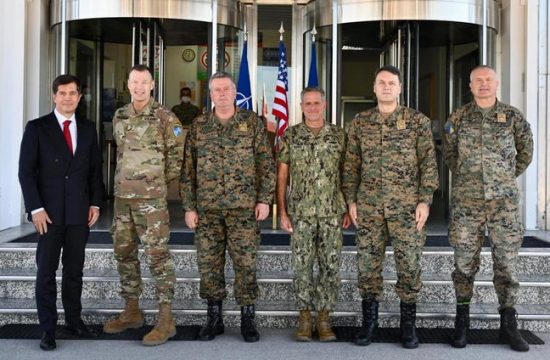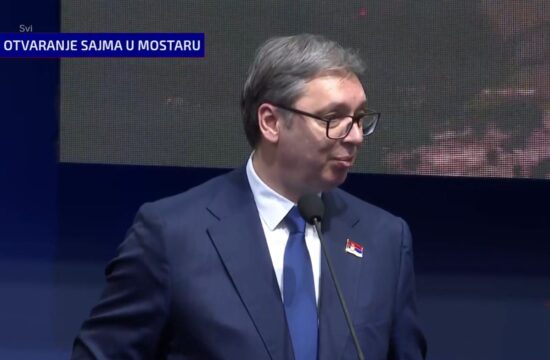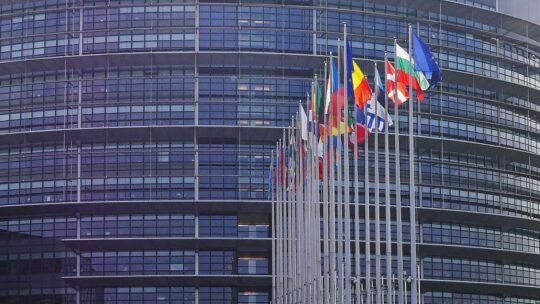
Croatian President Kolinda Grabar-Kitarovic visited the Cetingrad border police station in central Croatia on the night between Wednesday and Thursday. After a midnight tour of the nearby border area with Bosnia and Herzegovina, she told reporters she had received assurances that the Croatian police are behaving in a professional manner.
In recent months, Croatia experienced an increased influx of illegal migrants from the Middle East, travelling the new Balkan route and arriving in Bosnia, from which they cross into Croatia in order to pass through towards Slovenia and other EU countries further west. The Cetingrad station is in the area with the highest frequency of illegal crossings.
According to a UNHCR report released on Wednesday, some 2,500 migrants were turned back to Bosnia after illegally entering Croatia in 2018, including 700 who reported violence and theft of personal belongings at the hands of Croatian border police. Also on Wednesday, Croatia's interior ministry issued a statement claiming that all allegations of mistreatment of migrants are unfounded.
The European Commission estimates that there are currently 3,500-4,000 migrants in Bosnia, most of them in areas near the Croatian border.
“My impressions about the border protection are excellent,” Grabar-Kitarovic said in the village of Buhaca after touring the border at the Maljevac joint international border crossing. She added she was pleased with the good cooperation between the Croatian and Bosnian police, praising their prompt reactions in incidents caused by migrant conflicts or in illegal border crossing attempts.
Grabar-Kitarovic herself inspected a section of the border with a thermal imaging camera, used to detect and track movements of people in adverse weather conditions or dense foliage. She added that her visit was prompted by numerous complaints by Croatians living in the border area, concerned about the increased number of illegal migrants in the area, and who fear for their own safety.
Grabar-Kitarovic said she had also received an appeal for help from the cross-border Bosnian town of Velika Kladusa, asking her to forward their request to prevent establishing a large migrant centre in that town to the European Commission.
Velika Kladusa is in northwest Bosnia, a few kilometres away from the border with Croatia, with the Slovenian Schengen passport-free border only 50 kilometres further west.
“This is the external border of the EU, and the (future) Schengen border, and with quality border monitoring we have proved that we are ready to join the Schengen area,” Grabar-Kitarovic said.
Croatia, which joined the EU in 2013, is not a member of the Schengen area yet but hopes to become part of it in the near future.




